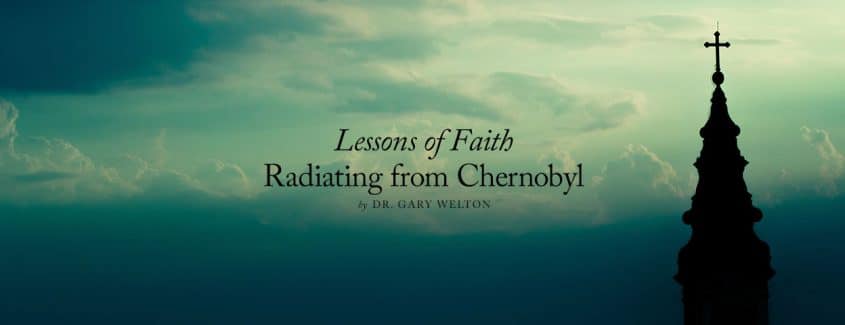
Described by the Belaruskaya Entsiklopedia as the “largest technological disaster of the 20th century,” the catastrophe at Chernobyl was the equivalent of 350 atomic bombs being dropped on Hiroshima. To increase your understanding of this tragic event, I highly recommend Svetlana Alexievich’s book, “Voices from Chernobyl: The Oral History of a Nuclear Disaster.” Alexievich was recently honored as the winner of the 2015 Nobel Prize in Literature, a well-deserved honor.
She published this documentary in 1997, having interviewed many survivors, about 10 years after the catastrophe. Her book is a thoughtful and gut-wrenching recounting of the personal tragedy and loss in the Ukraine and Belarus. The book was translated into English in 2005 by Keith Gessen. I hope the Nobel Prize will motivate more people to read this historical account. Those who are accustomed to only reading novels should not avoid this book. It is fascinating reading. One journalist reported, “Show me a fantasy novel about Chernobyl—there isn’t one! Because reality is more fantastic.”
She emphasized the medical impact on both the human and animal levels. For example, one child reported, “The sparrows disappeared from our town in the first year after the accident. They were lying around everywhere—in the yards, on the asphalt. They’d be raked up and taken away in the containers with the leaves. They didn’t let people burn the leaves that year, because they were radioactive, so they buried the leaves.”
The societal losses were also emphasized. One man said, “Of course I agree with those who write that it wasn’t just the reactor that exploded, but an entire system of values. But this explanation isn’t quite enough for me.” The book includes political commentary. “We don’t need anything from the government. Just leave us alone, is all we want … we’ll be all right without the government.” One man reported, “The Gulag, Auschwitz, Chernobyl. One generation saw it all.”
There is also cultural analysis, from a society that is less individualistic than America. A photographer reported, “Our politicians are incapable of thinking about the value of an individual life, but then we’re not capable of it either. Does that make sense? We’re just not built that way. We’re made of different stuff.”
For me, however, the primary impact of this oral history involved the comments the survivors made about their faith.
The Orthodox Church had strong historical traditions in the European sectors of the Soviet Union. The Kremlin, however, had sought to create a new atheistic society. In some ways, they were successful in that project; in other ways, not so much.
For example, Malcom Muggeridge is quoted, “The authorities forgot to suppress the works of Tolstoy and Dostoevsky, the most perfect expositions of the Christian faith of modern times” (as cited by Philip Yancey). Yet copies of the Bible were hard to obtain, and many churches were eliminated. To understand the catastrophe of Chernobyl, one must understand the event in the context of a Christian tradition within an atheistic (but disintegrating) empire.
Survivors made the following statements about how they coped with the disaster, and how it changed their lives:
- “Dying isn’t hard, but it is scary. There’s no church. The priest doesn’t come. There’s no one to tell my sins to.”
- “Everyone prays. And those who don’t know how to pray, also pray.”
- “There used to be Communism instead of God, but now there’s just God. So we pray.”
- “Now I sing in the church choir. I read the Bible. I go to church—it’s the only place they talk about eternal life. They comfort a person. You won’t hear those words anywhere else, and you so want to hear them.”
- “But for a person who was raised under Stalin, we couldn’t imagine the possibility of some supernatural power. I only read the Bible afterwards.”
- “Sometimes I get strange thoughts, sometimes I think Chernobyl saved me, forced me to think. My soul expanded.”
I had the opportunity for three consecutive summers to help support and interact with a boy through Children of Chernobyl. We still joke about his renaming mashed potatoes, as he regularly asked whether or not smashed potatoes would be on the menu. In relative terms, he is one of the fortunate ones.
There are many lessons from human tragedy. One survivor said, “Victory is not an event for us, but a process. Life is a struggle. An overcoming.” Alexievich reports here on men and women who continue this struggle, seeking to find eternal and ultimate meaning in our temporal and human struggle.



